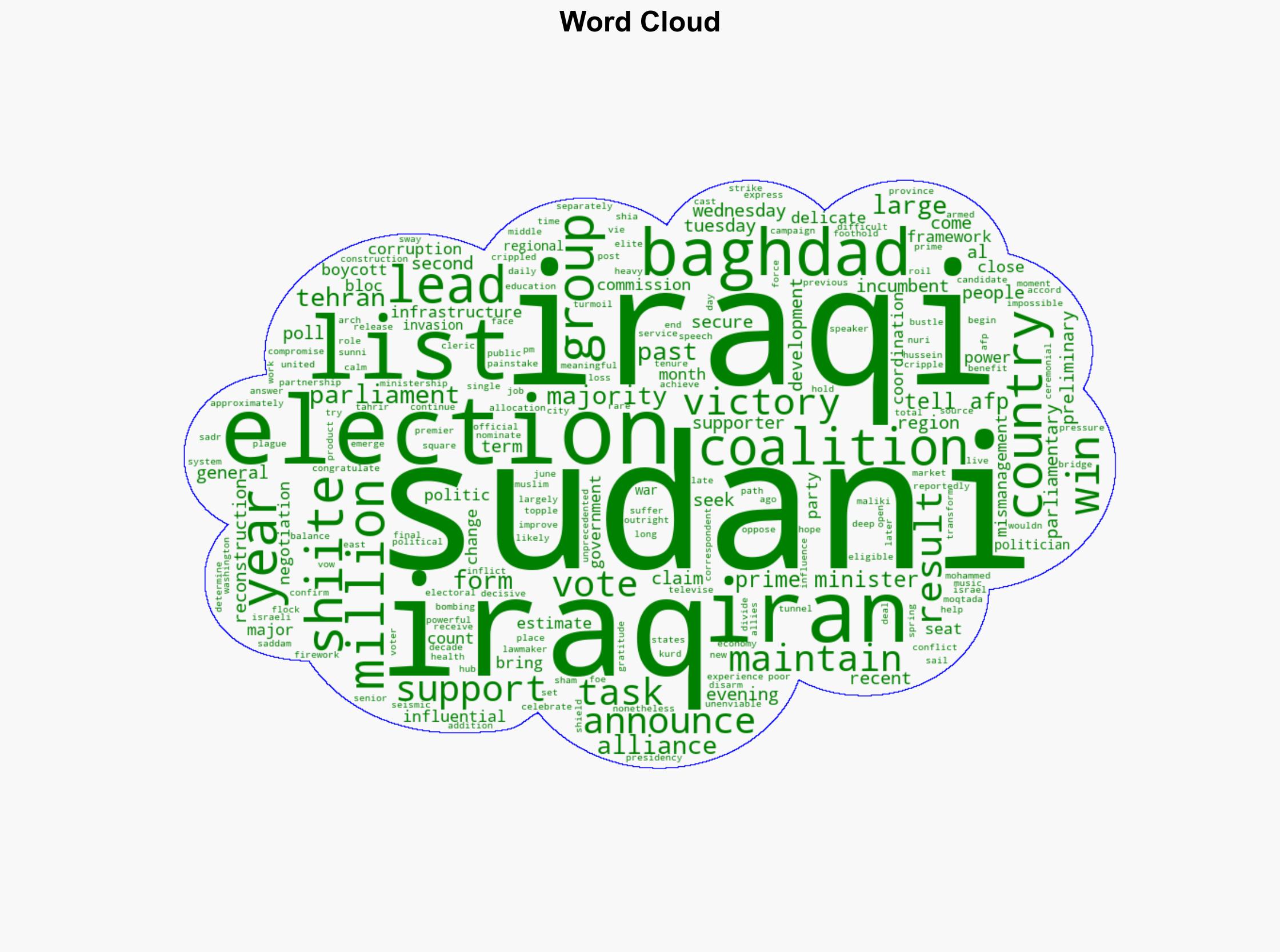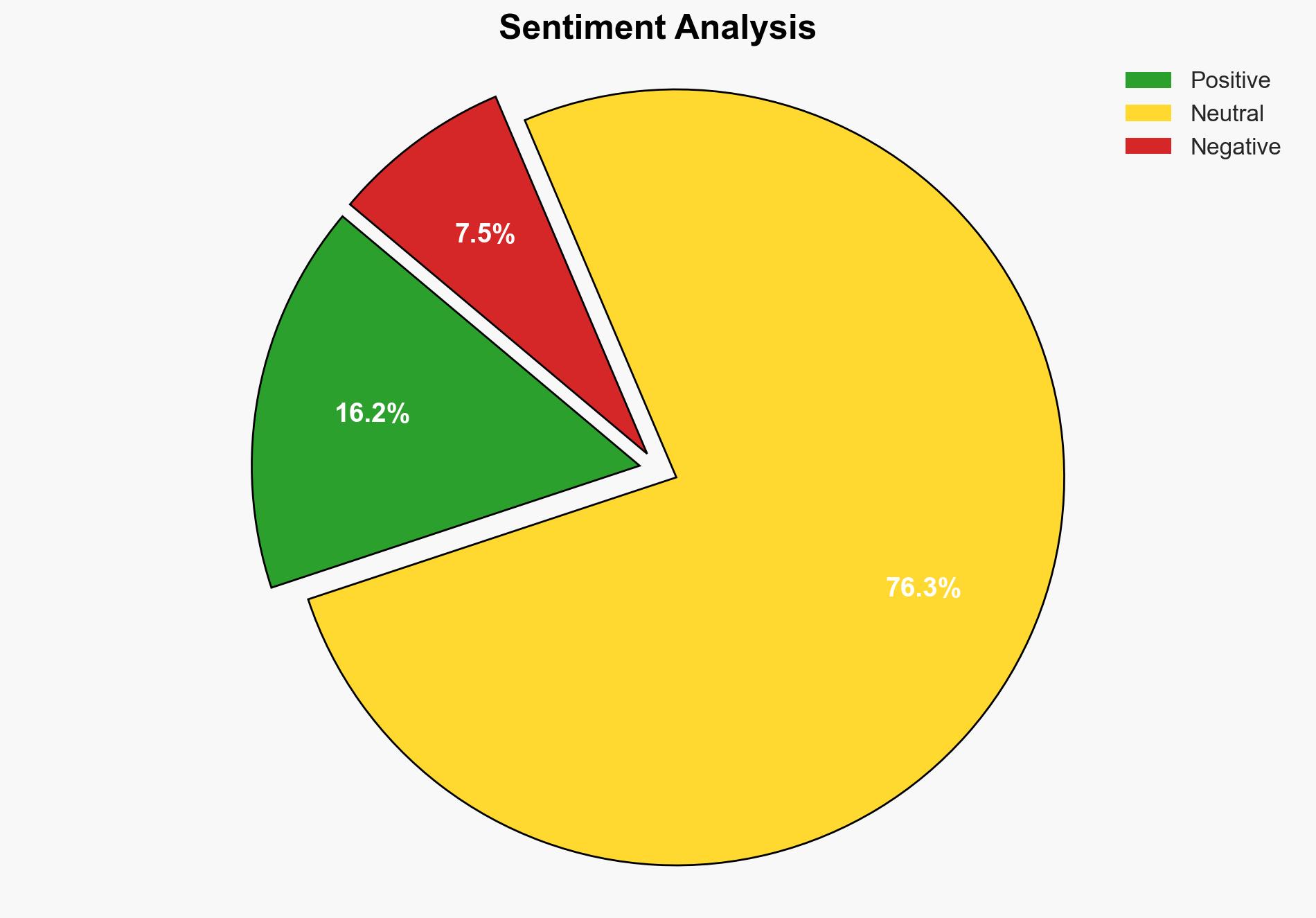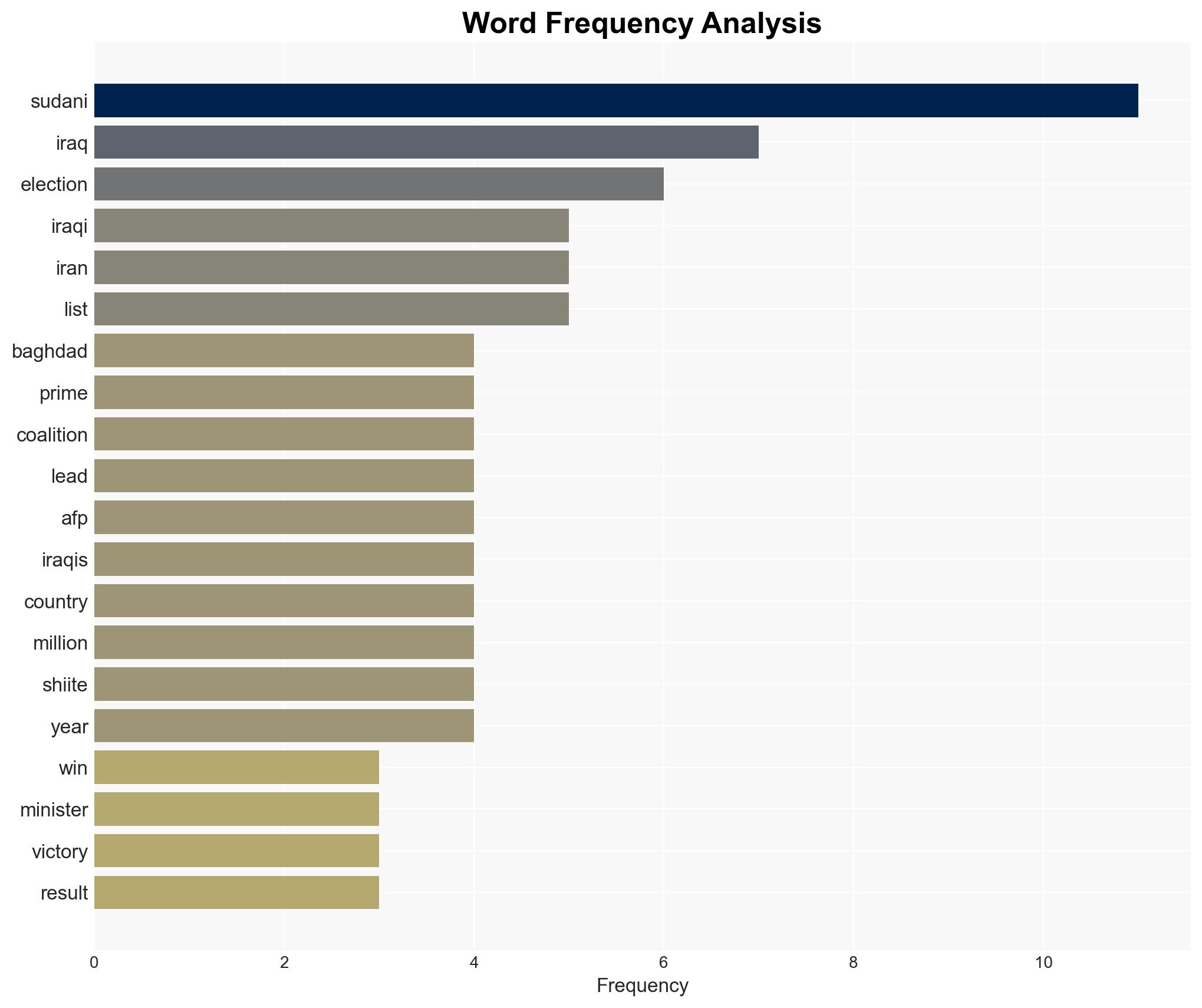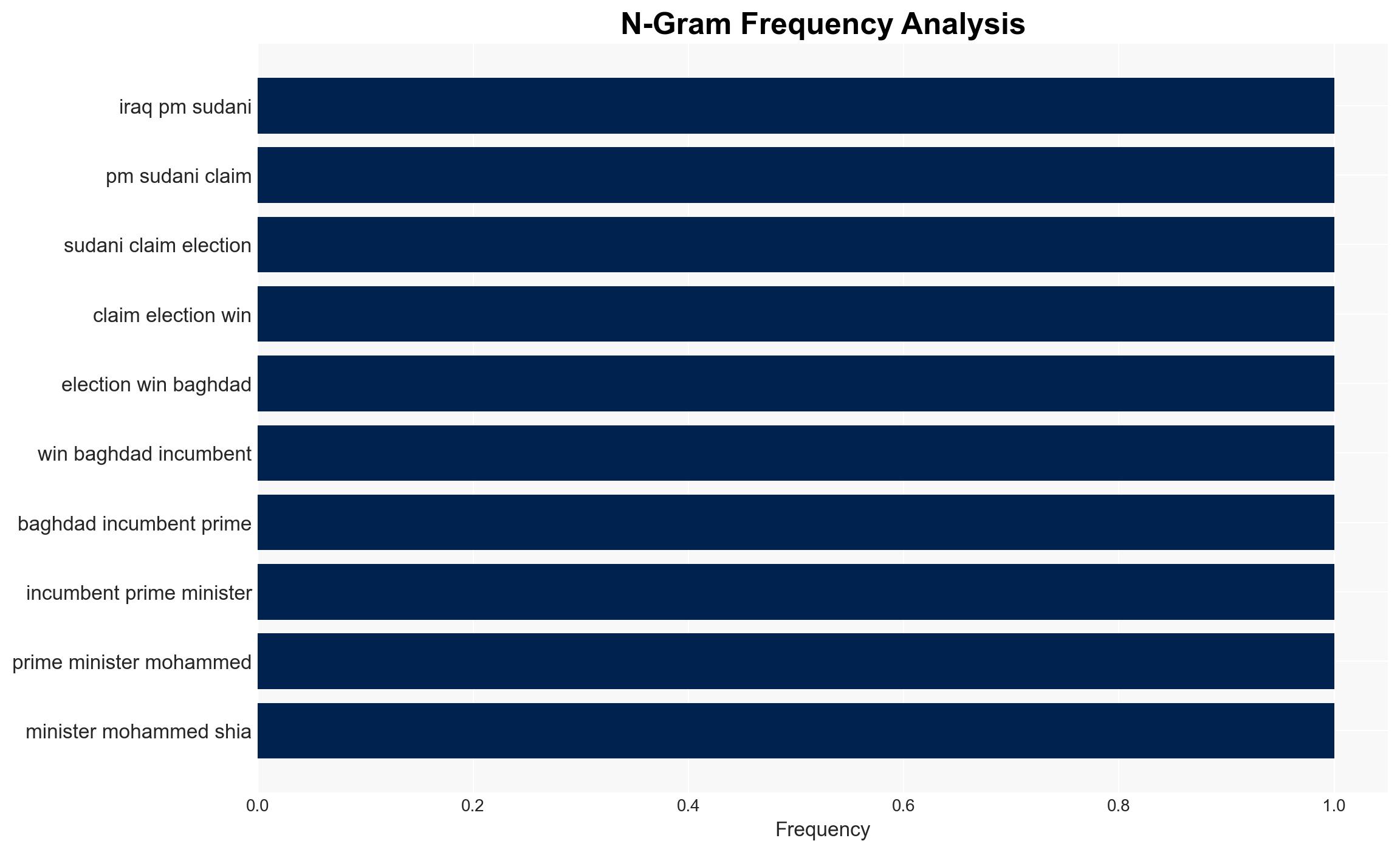Iraq PM Sudani claims election win – Hurriyet Daily News
Published on: 2025-11-13
AI-powered OSINT brief from verified open sources. Automated NLP signal extraction with human verification. See our Methodology and Why WorldWideWatchers.
Intelligence Report: Iraq PM Sudani claims election win – Hurriyet Daily News
1. BLUF (Bottom Line Up Front)
The most supported hypothesis is that Prime Minister Mohammed Shia al-Sudani’s claimed election victory will likely lead to a continuation of his policies, albeit with potential internal and external challenges. Confidence Level: Moderate. Recommended action includes monitoring coalition negotiations and preparing for potential instability due to opposition from factions within the Coordination Framework.
2. Competing Hypotheses
Hypothesis 1: Sudani’s claimed victory will consolidate his power, leading to a stable government that can focus on reconstruction and development.
Hypothesis 2: Despite Sudani’s claim, internal divisions and opposition from figures like Nuri al-Maliki within the Coordination Framework will lead to prolonged political instability and hinder effective governance.
Hypothesis 2 is more likely due to the historical precedent of factionalism in Iraqi politics and the reported opposition from influential figures within Sudani’s coalition.
3. Key Assumptions and Red Flags
Assumptions: The election results are accurate and reflect the true will of the electorate. Sudani’s coalition can maintain unity despite internal opposition.
Red Flags: Reports of voter boycotts and dissatisfaction suggest potential for unrest. The historical influence of Iran and the U.S. in Iraqi politics may complicate coalition dynamics.
Deception Indicators: Sudani’s public statements may overstate his coalition’s unity and public support to project strength.
4. Implications and Strategic Risks
Political Risks: Prolonged coalition negotiations could lead to a power vacuum, increasing the risk of political instability.
Economic Risks: Continued corruption and mismanagement could deter foreign investment and hinder economic recovery.
Informational Risks: Misinformation campaigns by rival factions or external actors could exacerbate tensions and undermine public trust in the electoral process.
5. Recommendations and Outlook
- Monitor coalition negotiations closely to identify potential flashpoints for instability.
- Engage with regional allies to support diplomatic efforts aimed at fostering political stability in Iraq.
- Best-case scenario: Sudani successfully forms a stable government, leading to improved governance and economic recovery.
- Worst-case scenario: Political deadlock and factional violence lead to significant instability and economic decline.
- Most-likely scenario: Protracted negotiations result in a fragile coalition government, with limited capacity to implement reforms effectively.
6. Key Individuals and Entities
Mohammed Shia al-Sudani, Nuri al-Maliki, Moqtada Sadr, Coordination Framework, Iraqi Electoral Commission.
7. Thematic Tags
Regional Focus: Middle East, Iraq, Political Stability, Coalition Politics
Structured Analytic Techniques Applied
- Causal Layered Analysis (CLA): Analyze events across surface happenings, systems, worldviews, and myths.
- Cross-Impact Simulation: Model ripple effects across neighboring states, conflicts, or economic dependencies.
- Scenario Generation: Explore divergent futures under varying assumptions to identify plausible paths.
- Narrative Pattern Analysis: Deconstruct and track propaganda or influence narratives.
Explore more:
Regional Focus Briefs ·
Daily Summary ·
Methodology





